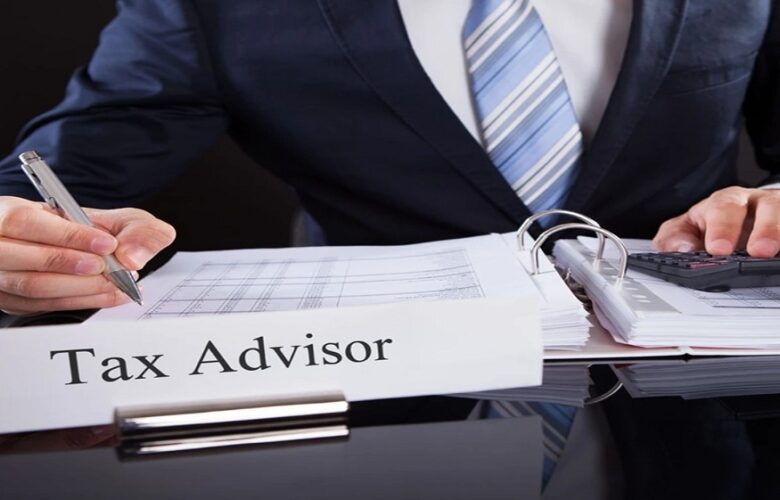Do you have a business? If you’ve got bricks and mortar business you may have been struggling thanks to the pandemic. With lockdowns implanted across the world and no one traveling whilst unemployment reaches record highs, it’s easy to see how this could have a knock-on effect on your business.
But even when things seem hopeless, there are still avenues you can explore. One of those is bankruptcy, which is business 101.
But when should you file for bankruptcy and what does it mean to declare bankruptcy? Here’s everything you need to know.
1. Only Use It as a Last Resort
You only want to file for bankruptcy as a last resort. You don’t want to find yourself filing for bankruptcy every year as this shows the outside world that you are a bad business person. It also means that you could have issues with other aspects of your life at later dates.
There are many alternatives to bankruptcy that you should investigate before you decide to press the red button.
First of all, try to come up with a reasonable plan to pay back your debts over a period of time. If you cut your living expenses to their bare minimum and work overtime at your job would you be able to pay back your debts within a few months or years? Do the sums and work it out.
Speak to those you owe money to and ask them whether you can devise a repayment plan so you have to pay back less over a longer period of time. Most companies would be prepared to accept this as ultimately they want to be paid back rather than not be paid back at all which might occur under a bankruptcy order.
If they refuse to budge and your debts seem unsolvable, far outweighing your income and the interest is likely to be crippling then it might be time to consider bankruptcy.
Explore Government Schemes
Can the government assist you in getting your credit back on track? There may well be schemes that can give you financial assistance.
If you are considering bankruptcy due to reduced business because of the pandemic you can apply for some funding from the federal government to keep your business afloat.
The CARES act also makes it harder in certain circumstances for the government to evict you from your property or commence foreclosing.
You could also choose to cash in your 401K and take half of it now up to the value of $50,000.
2. It Damages Your Credit Report
Bankruptcy can damage your credit rating going forward. This can become a problem if you need to get a loan for a major milestone in your life such as a mortgage for a house or a loan for a car.
Bankruptcy will ruin your credit for either seven or ten years depending on whether you for a chapter 7 or chapter 13 bankruptcy.
Returning your credit score to normal following bankruptcy takes hard work but it can be done. Gradually you can restore it to normal.
And one method to do this is try to get access to as many credit cards on special arrangements as you can. These are credit cards where you have to pay a deposit to the bank in case you fail to make your repayments.
This might seem onerous and not worth doing but it’s worth considering forking out the money for the deposit and then doing all of your everyday spending on a credit card. Showing that you can and are willing to pay the credit card back in full is a great way of exhibiting to credit scoring companies that you have turned over a new leaf and have changed your ways.
3. Chapter 7 vs Chapter 13
There are two types of bankruptcy and one is more serious than the other with greater penalties.
Chapter 7 starts the process of liquidation. Your assets are valued and then sold off to pay off your debts. If your assets don’t cover the total cost of your debts then that debt is then wiped.
Remember that student loans and child support are rarely included in any wipeout under a chapter 7 bankruptcy declaration, though this may well change in 2021. This means you will still be eligible to pay them.
Poor Man’s Bankruptcy
Chapter 7 is known as the poor man’s bankruptcy because people who opt for it generally have fewer assets to lose and have a lower income.
A chapter 7 arrangement gives the holder the ability to start again and the creditors the chance to recoup some of the money through the sale of assets rather than being drip-fed small amounts of money over a long period of time.
Rich Man’s Bankruptcy
Chapter 13 bankruptcy is generally what wealthier individuals chose to go for. Under this arrangement, the individual can decide to keep their assets so long as they stick to and agree to a payment plan usually between 3-5 years.
This is great for wealthy business people who have been adversely affected by a short term crisis who know that they have enough capital and the means to pay back their debts eventually.
But it stops the embarrassment of a wealthy business owner having to sell their home or expensive car and significantly downgrades their lifestyle. Downgrading their lifestyle could be hard mentally but it can also have a negative effect on the ability of the wealthier man to pay back their loans.
A visible lifestyle downgrade could lead to diminishing confidence by some investors when they come to make decisions about whether to continue investing in their business.
4. The Courts and Bankruptcy
The courts have some input in deciding which type of bankruptcy you are eligible for. If a person petitioning for chapter 13 bankruptcy has just lost their job and has only one valuable asset and they have little hope of getting a new job in the foreseeable future it would be unfair of the court to issue a chapter 13 judgment.
This would prolong the affair and put unfair constraints on the debtor who would be unlikely to see much of the money they are owed again.
One way the courts help determine who is eligible for chapter 7 and who should go for chapter 13 is through a means test. Your household income over the last six months is compared to the average in your state or local area.
What is being determined is how much disposable income you have leftover compared to the average family and whether that disposable income after basic expenses could cover the cost of your debts over a 3-5 year period.
Those wishing to conduct a means test to determine their eligibility for a chapter 13 bankruptcy order are advised to fill in form 122A-2 which can be downloaded from the U.S government’s official court site. This is one of the key tenants that any lawyer will advise you during their business guide on bankruptcy.
Establish What Are Your Debts and Who You Owe Money To
This might sound like an obvious piece of information that you should have-to-hand but it’s can actually be quite complicated. Debts can be sold on to third-party loan sharks and if they buy up many of your debts they can then be consolidated.
The higher your debt the higher the interest is likely to be and if you have left your debts to stack up this likely to be significant. These are key business 101 facts.
Credit cards and payday loans have the highest rates of interest while title loans for cars and loans from banks have a more reasonable level of interest. A small loan from a payday loan company can easily get out of control if you leave it for months or even years.
Remember that on top of your debts, filing for bankruptcy is not free. There are court costs that can stack up. Be sure to find out the cost to file for bankruptcy with The Licata Bankruptcy Firm who can give you an estimate.
Taking Care of Your Debts Is Business 101
Taking care of your business debts is business 101, though that might be easier said than done in this COVID year.
Try to pay off all your debts as soon as possible and work on payment plans to make this a reality. Explore what government assistance you are eligible for and whether that can help stem the crisis for now while you try to find a way out.
If all else fails then filing for either a chapter 7 or a chapter 13 bankruptcy might be your only option.
If you are interested in learning more about a business guide on bankruptcy or some more business 101 tips then be sure to check out the rest of our site.




